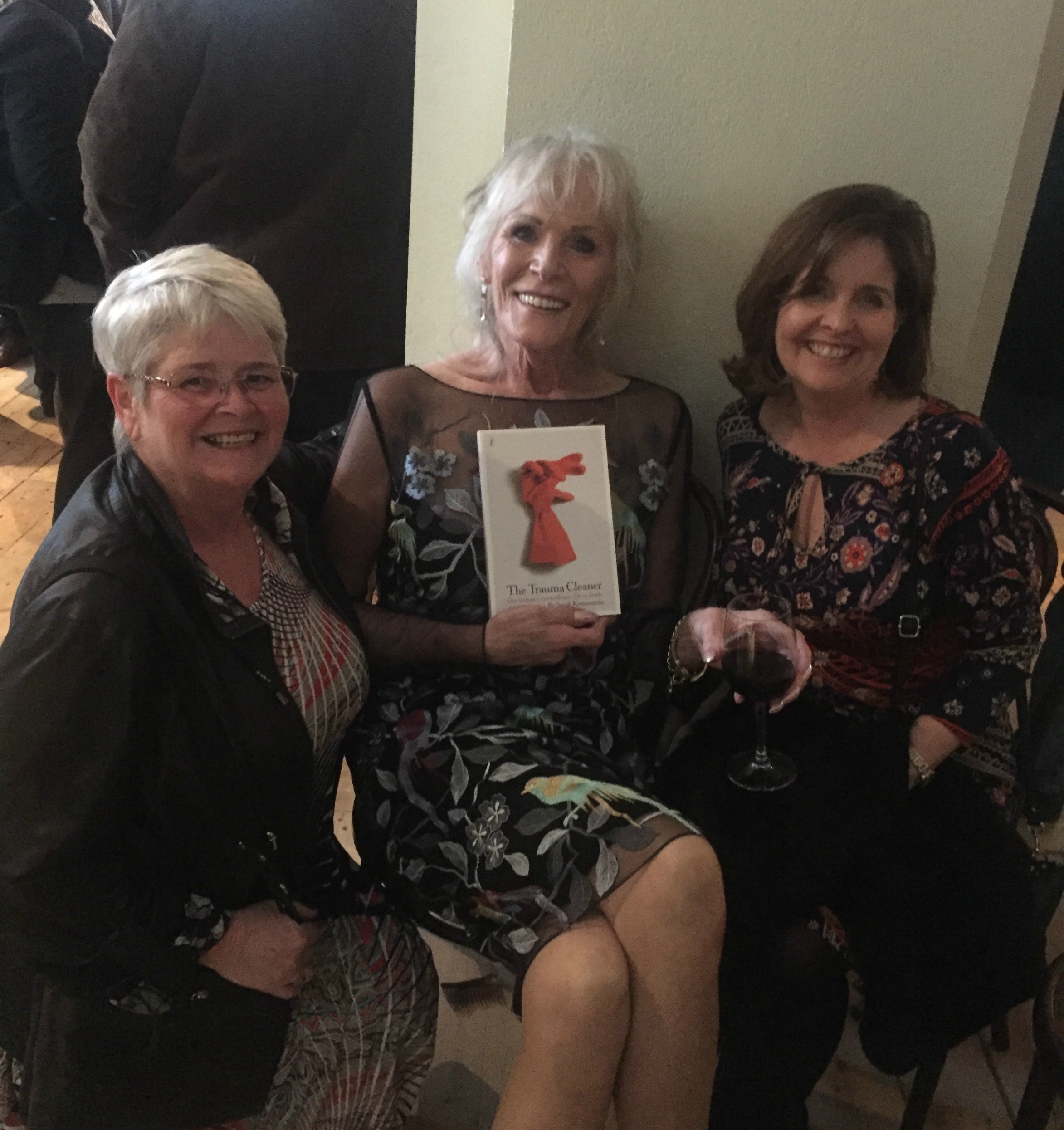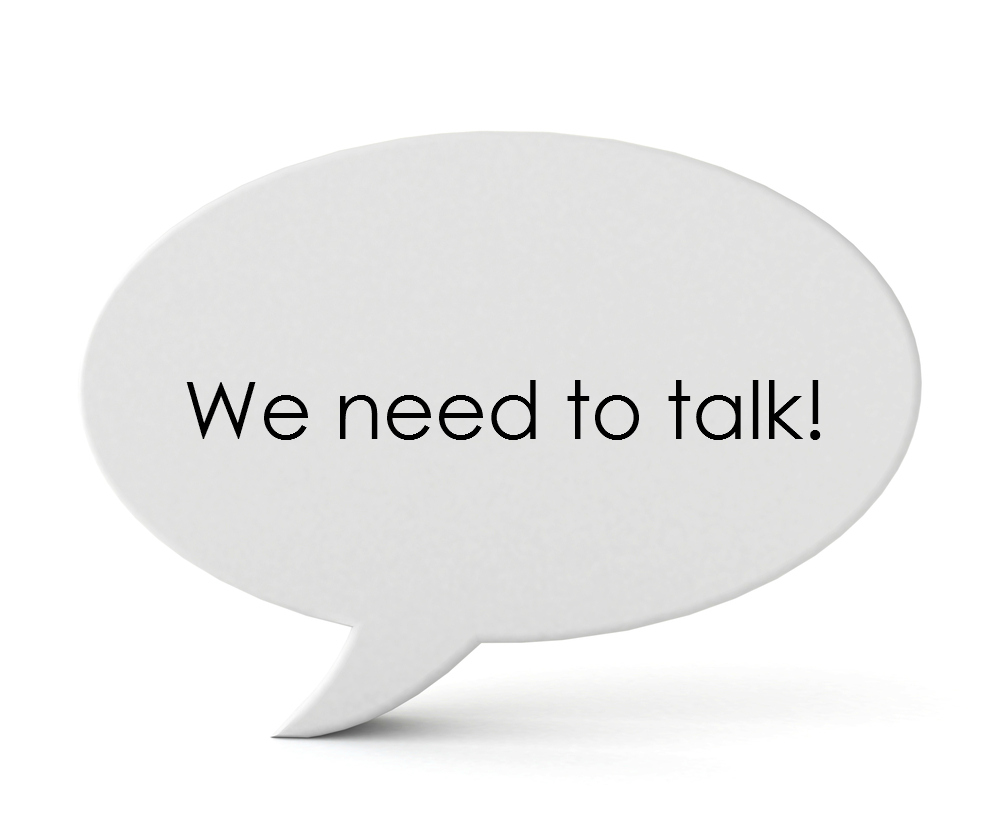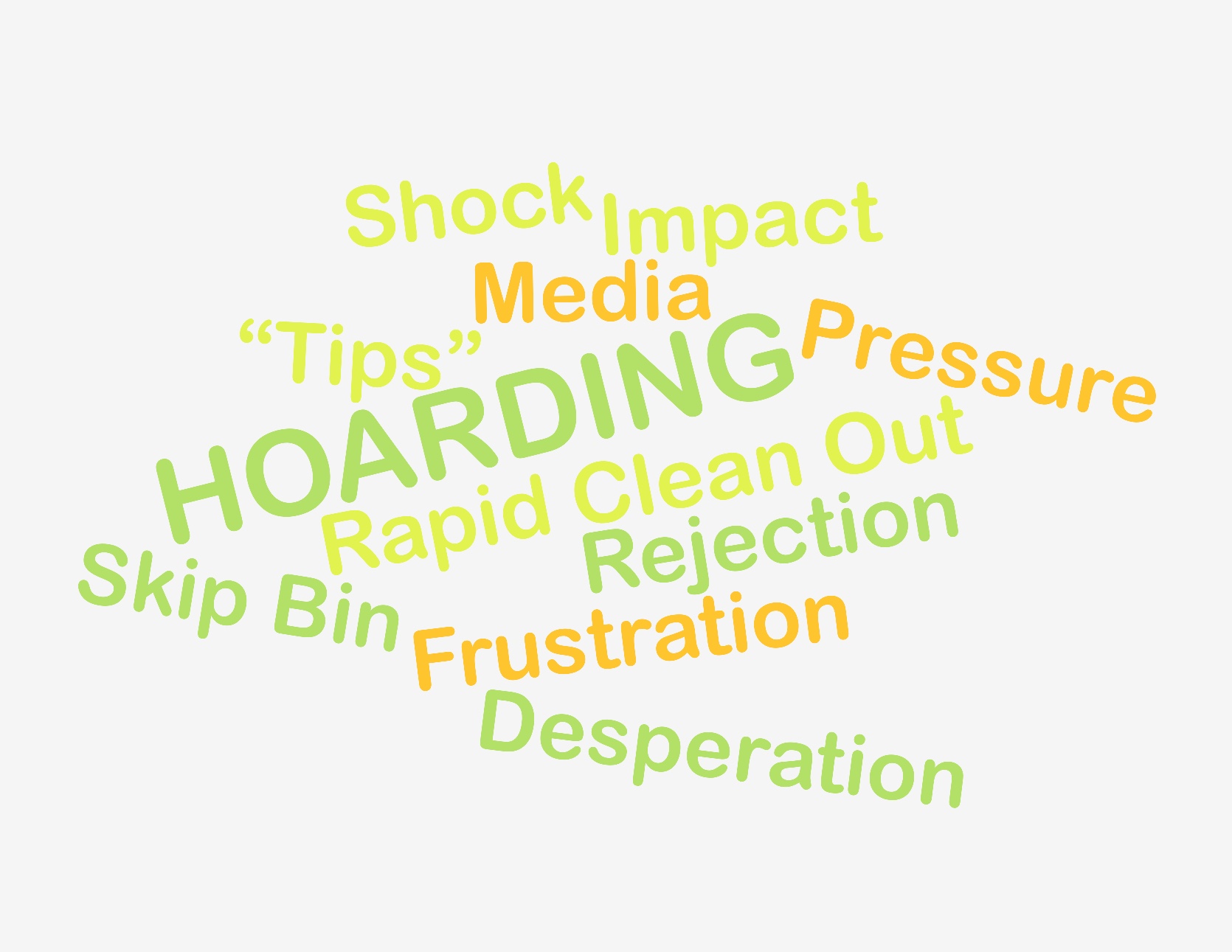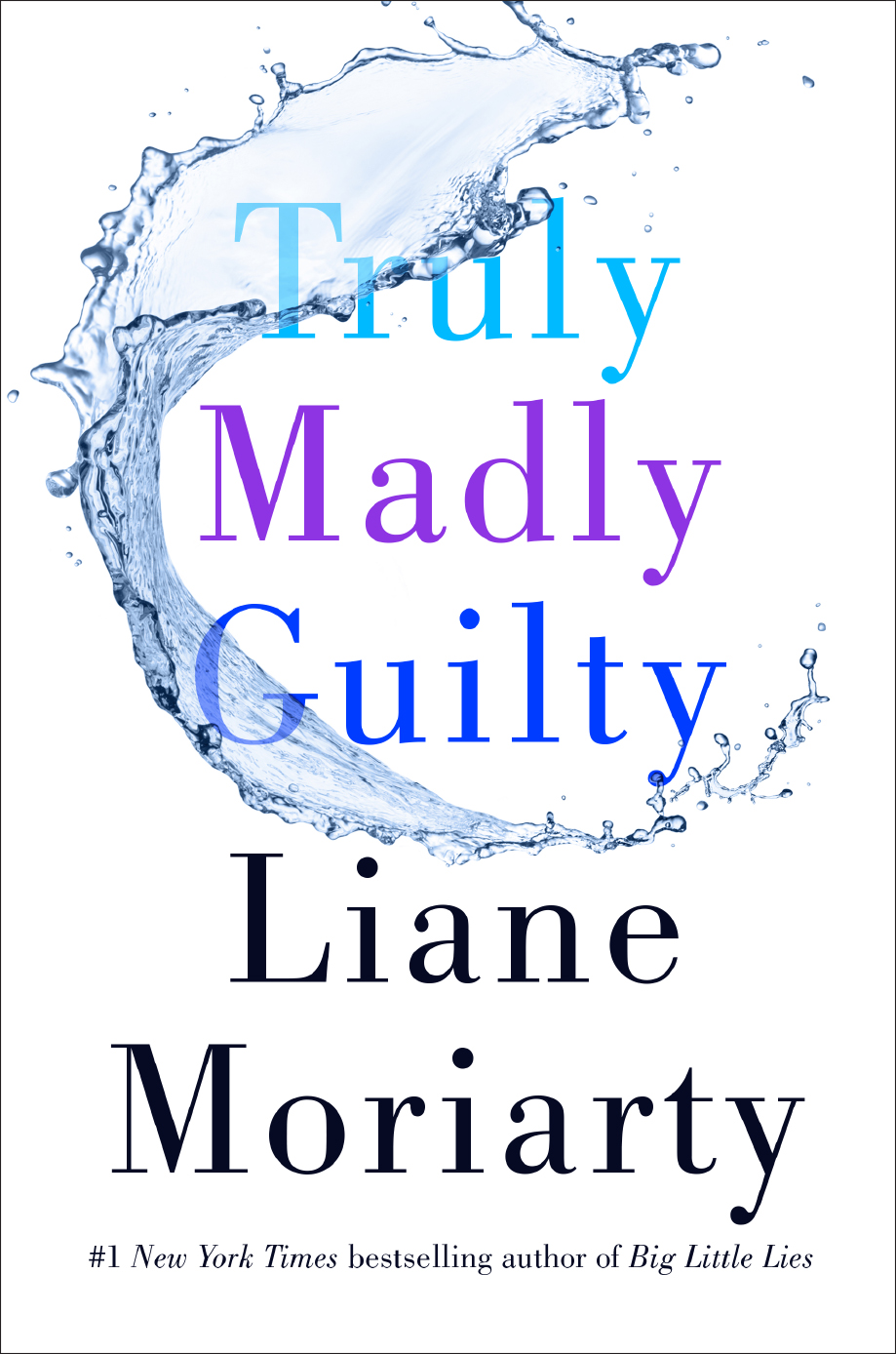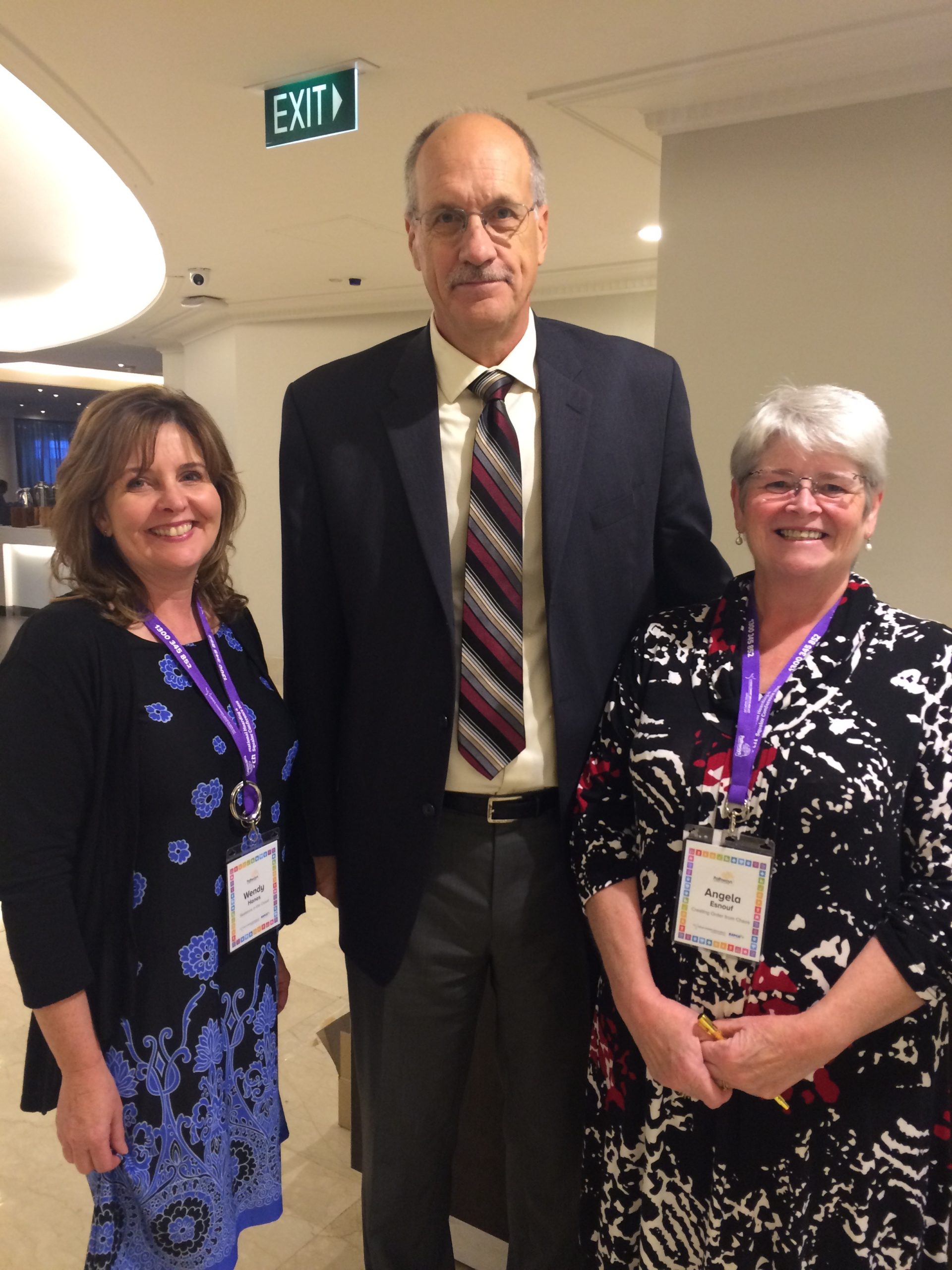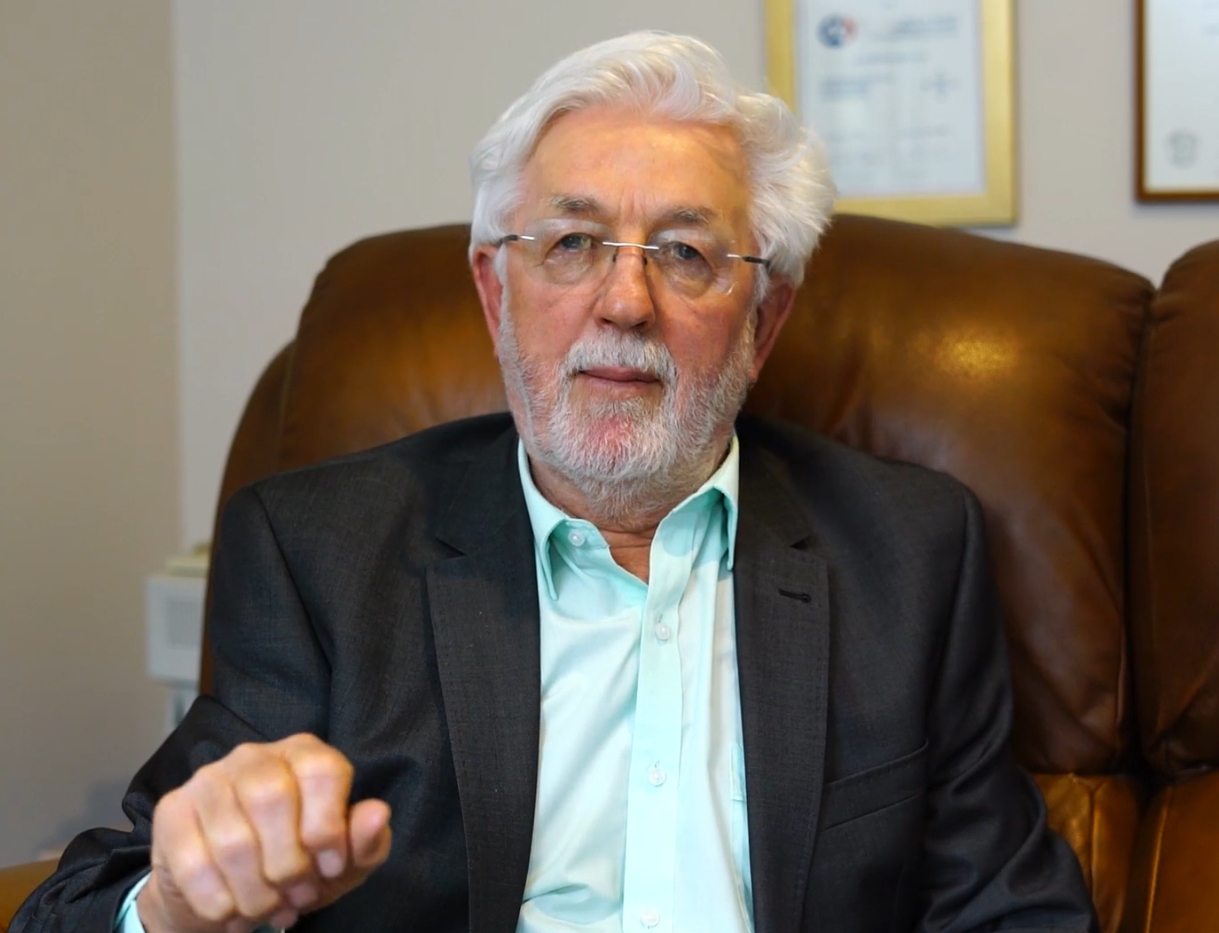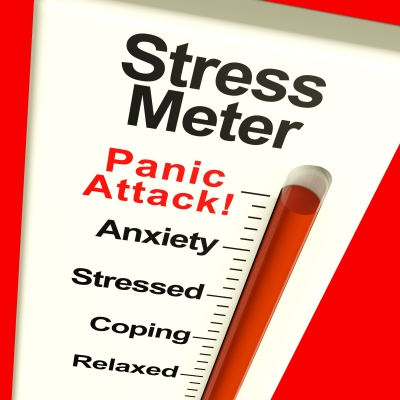Written by Wendy Hanes, who represented Australia on the ICD International Panel of Hoarding Experts at the ICD 2019 conference.
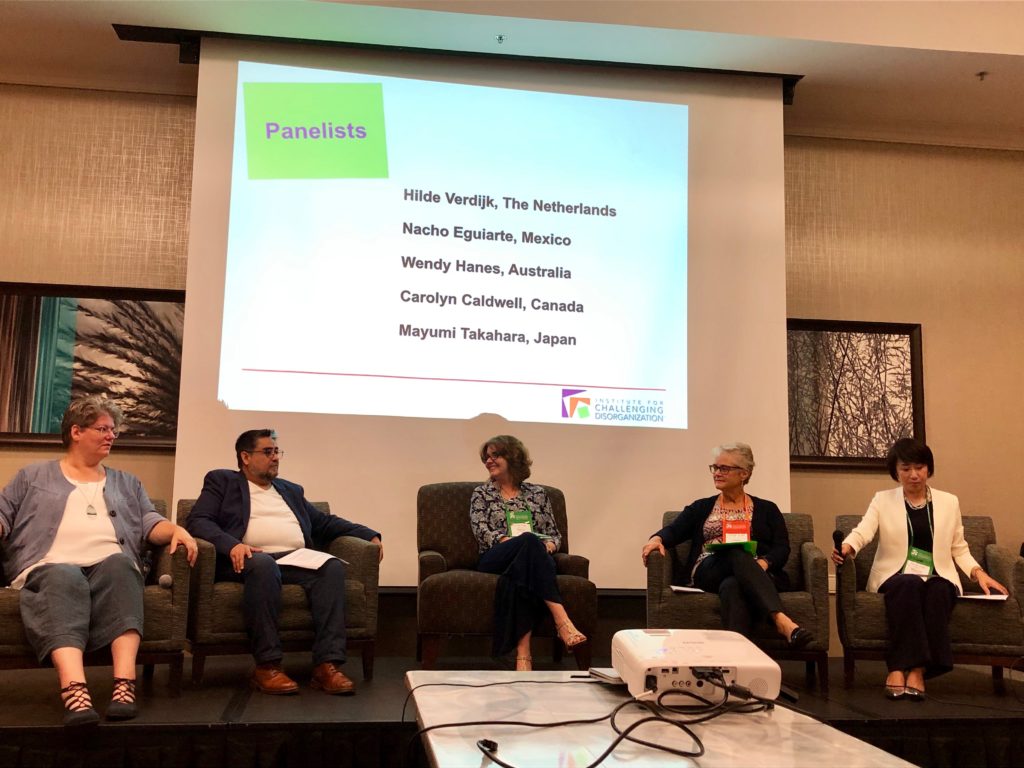
What a privilege to represent Australia on the world stage! The Institute for Challenging Disorganization 2019 Conference in Orlando, Florida, was the venue for an International Panel on Hoarding including delegates from Canada, Mexico, The Netherlands, Japan and Australia.
Consistently, panellists described how popular media had significantly impacted public perception of hoarding in their country. Hilda Verdijk, representing The Netherlands, described how media employed a formula that entertained but did little to educate the pubic about the complexity of the disorder or appropriate ways to support a person who hoards. Mayumi Takahara added that people in Japan were enthusiastic consumers and lived in small spaces and most people did not live like Marie Kondo.
The Netherlands is leading the way in generous and flexible support for people who hoard at the clinical and in-home support levels. In contrast, Nacho Eguiarte from Mexico explained that hoarding was still a taboo subject with sufferers facing the threat of being declared mentally incompetent. Similarly, in Japan, people who hoard may be shamed and are considered to bring shame on their loved ones. However, on a government level in Japan there was growing recognition of the issue with ordinances and funding models being developed.
Carolyn Caldwell, the Canadian representative detailed geographic and political challenges. Task forces didn’t appear to be playing an effective role, and no specific hoarding support was available. A typical avenue that could be pursued when faced with a difficult hoarding situation was to contact the local Fire Marshall for an order to clean up.
So how did Australia Fare?
At a public level, hoarding is often perceived as a clutter problem rather than a complex, diagnosable, treatable, behavioural disorder. There is no evidence that hoarding is on the federal or state government agendas. The disorder is not even formally recognised by the National Disability Insurance Scheme (NDIS), although participants can often receive support for their hoarding behaviours as part of the treatment for a co-morbid mental or physical health issue. On the positive side, the academic brains trust is expanding, and new and interesting research is regularly coming to hand. There is a shift in local government from seeing hoarding as an environmental health issue to a complex problem that requires attention to the resident’s well-being as well as the cluttered environment. Housing and support agencies are well versed in the complexities but often lack practical strategies, funds and services to help keep people safe and housed.
Where to from here
In Australia, we consistently hear people talk about the need for the government to make policies and provide services and funds. This would be ideal and is something that is worth advocating for. However, there is no value in postponing action until the government provides direction.
At Hoarding Home Solutions, we believe that with the right training, anyone who enters a hoarding home can take effective steps to remediate a hoarding situation and improve the safety and comfort of the residents. It’s not about creating more work for people on the ground, it’s about giving them the skills to work more effectively, with confidence and compassion.
While there’s a huge contrast in how hoarding is perceived and treated across the globe, there is immense value in keeping dialogue open and learning from our international colleagues to reach a mutually understood world’s best practice.


